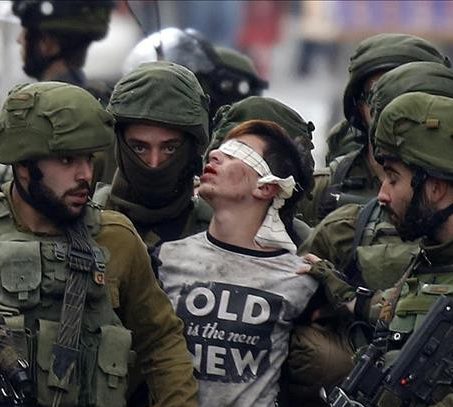
A KKK rally with a burning cross; in case anyone wants to deny their Christian symbolism. The Muslim Times has an extensive collection of articles to refute Islamophobia
Tempted to make generalizations about a world population of 1.5 billion Muslims? Please think twice, says Georgetown University professor Jonathan Brown.
“There are going to be different representations of any religion, and you have to be hesitant when people say they represent the true version of something” he says.
The Presidential campaign in the United States has featured a lot of anti-Muslim rhetoric on the part of one candidate, Donald Trump, who recently walked back a proposal for a complete ban on Muslims instead suggesting that his plan would focus only on “terrorist countries.”
But even under the broadest definition of a terrorist, says Brown, only .01 % of Muslims would qualify for that label, making the correlation statistically false. (A 2014 CNN article by Peter Bergen and Emily Schneider estimated that there might be, at the most, 106,000 jihadist militants worldwide).
“Americans don’t care when Muslims go to bed, brush their teeth, or go to work, “says Brown, director of the Prince Alwaleed bin Talal Center for Muslim Christian Understanding. “People only seem to care when Muslims do horrible things.”
The season of Ramadan (a month marked by daylight fasting, prayer, and charitable works) has been marked this year by grim events across the world, particularly in Muslim-majority countries, but also in Europe and the United States. In Iraq, where a truck bomb exploded this past Sunday in Baghdad, 285 people have now died from injuries sustained when they crowded the streets to mark the end of their daily fast.
“Many more Muslims have died at the hands of ISIS than non-Muslims’ says Brown.
In the United States, University of North Carolina sociologist Charles Kurzman, who tracks Muslim-American terror suspects and perpetrators reported that in 2015 81 Muslim-Americans were associated with terror plots – the highest number since the events of September 11, 2001. The majority were attempting to travel to join militant groups abroad.
The total number of Muslim-Americans involved in violent extremist plans since 9/11? As of 2015, that number was 344, with half plotting against overseas targets.
Saying that ISIS represents Muslims is akin to claiming that the Ku Klux Klan represents Christianity, says Brown. “Does the KKK, which emerged out of a context of slavery and white supremacy represent what Americans want their country to be?” While ISIS comes out of the Islamic, because it uses verses from the Koran and should be viewed in the broader context of anti-colonial and anti-imperialist movements, it isn’t at all what most Muslims see as an accurate representation of their faith, he says.
In the United States, recently Muslim children have been bullied, women fear wearing their headscarves, and men and women identified as faith members are shot at and sometimes killed.
In part because President George W. Bush expressed support for American Muslims after the World Trade Center bombings of 2001, Islamophobia didn’t spike until the Fort Hood shootings, when Army psychiatrist Nidal Hasan says the Georgetown professor.
Fear of Islamic radicals can also be attributed, not only to historical enmity between Islamic and Western cultures, but incitement by a network of well-funded activists with a stake in keeping the prospect of an imminent threat alive, he says, citing this report by the Center for American Progress.
How can non-Muslim Americans work to improve the way their Muslim brothers and sisters are treated in the United States?
Brown suggests that it may be time for Americans to openly discuss and confront homegrown Islamophobia.
“We have to struggle against bigotry and discrimination. We have to say that this is anti-American” he says. It’s also time to treat Muslims like any other group of Americans, rather than identifying them with extremists, he says.
It’s also important for United States residents to consider the effect of American military action abroad, says Brown, who says that approximately 1.5 million people have died as a result of the “war on terror” pursued by America. “Americans really need to reflect on the actions of our country abroad, how they perpetuate conflict and how it comes back to harm Americans.”
The average American doesn’t travel abroad, and doesn’t necessarily know how people suffer in Iraq or Afghanistan, he says. If they did, they might feel differently.
“Hopefully the saying that it’s always darkest before the dawn is true in this case.”
(Source: The Muslim Times / 14.07.2016)

